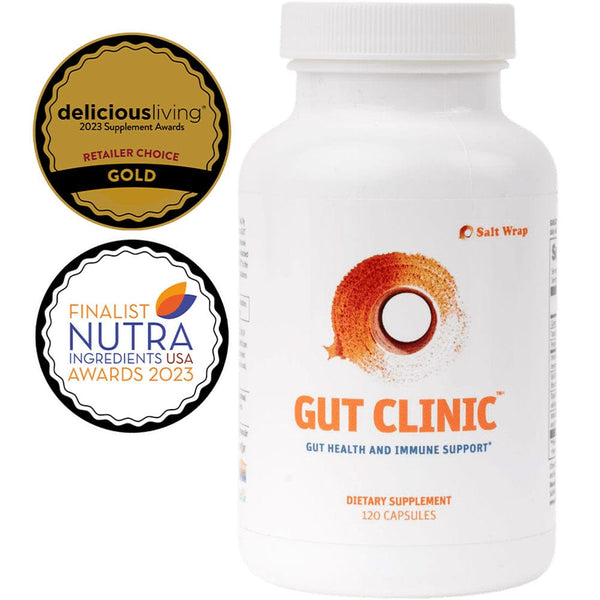Discover the Key to Digestion and Resistance With Intestine Wellness Assistance

Comprehending Gut Health And Wellness
Understanding gut wellness is vital for overall wellness, as it plays a substantial duty in digestion, immunity, and also mental wellness. The digestive tract, consisting of the gastrointestinal tract, is in charge of breaking down food, taking in nutrients, and eliminating waste. A balanced digestive tract setting ensures effective food digestion, permitting the body to utilize nutrients efficiently.
Additionally, intestine health substantially influences the body immune system. The gut houses a considerable part of the body's immune cells, and a healthy and balanced intestine can help fend off pathogens and decrease swelling. Disturbances in intestine wellness can lead to an over active immune feedback, potentially contributing to autoimmune disorders and allergies.
Additionally, the digestive tract is commonly described as the "2nd mind" as a result of the gut-brain axis, a complex communication network linking the digestive tract and the brain. This connection influences mood, cognition, and emotional wellness. Problems such as dysbiosis, identified by an inequality in intestine microorganisms, have been connected with mental health problems, consisting of anxiousness and clinical depression.
The Intestine Microbiome Explained
The gut microbiome, a varied area of bacteria living in the intestinal tract, plays an essential function in preserving gastrointestinal health and wellness and overall well-being. Comprising trillions of microorganisms, infections, fungi, and other microbes, this facility ecosystem aids in the food digestion of food, the synthesis of necessary nutrients, and the regulation of metabolic procedures.
Each person's digestive tract microbiome is unique, affected by variables such as diet regimen, way of life, genes, and environmental direct exposures. A balanced microbiome sustains ideal digestion by breaking down facility carbs, creating short-chain fatty acids, and helping with the absorption of nutrients. On the other hand, an inequality, frequently referred to as dysbiosis, can bring about digestive system conditions, consisting of cranky digestive tract syndrome (IBS) and inflammatory bowel condition (IBD)
Research has shown that a diverse microbiome is linked with better health results, underscoring the significance of nutritional choices in nurturing these microbes. Foods rich in fiber, probiotics, and prebiotics, such as fruits, veggies, and fermented products, can promote a healthy and balanced microbiome. Recognizing the gut microbiome is necessary for establishing targeted treatments targeted at enhancing digestion wellness and preventing intestinal illness.

Link Between Food Digestion and Immunity
A robust link exists between food digestion and immunity, highlighting the vital role of the digestive tract in keeping total health. The stomach tract is home to trillions of bacteria that create the gut microbiome, which substantially affects both immune feedbacks and gastrointestinal procedures. This facility ecosystem aids in breaking down food, taking in nutrients, and giving important metabolites that support immune feature.
When food digestion is efficient, the digestive tract obstacle remains intact, stopping unsafe pathogens from entering the bloodstream (gut health supplement). Conversely, inadequate food digestion can lead to a discrepancy in the microbiome, leading to dysbiosis, which has actually been connected to different health problems, consisting of inflammatory problems and autoimmune conditions. Roughly 70% of the immune system lives in the gut-associated lymphoid cells (GALT), which interacts closely with the intestine microbiome. This interaction makes certain that the body immune system can properly identify in between advantageous and hazardous substances.
Tips for Sustaining Intestine Wellness
Supporting digestive tract health is essential for keeping both digestive effectiveness and a well-functioning immune system. To foster optimal intestine health and wellness, consider incorporating numerous practical methods right into your daily regimen.
First, prioritize hydration. Drinking adequate water sustains food digestion and aids keep the mucosal lining of the intestinal tracts. Additionally, normal physical task can improve intestine motility and promote a diverse microbiome.
Mindful eating methods are additionally necessary. Chewing food thoroughly and eating slowly can aid food digestion and avoid overeating, which might emphasize the gut. In addition, taking care of anxiety with techniques such as reflection, yoga, or deep-breathing workouts can positively influence intestine health and wellness, as stress is known to check this interfere with gastrointestinal procedures.
Integrating prebiotics and probiotics right into your regimen is one more effective approach. While details foods will certainly be talked about later on, understanding the importance of these elements is important. Prebiotics serve as food for beneficial gut microorganisms, while probiotics present live advantageous organisms.
Finally, avoid extreme usage of antibiotics, as they can interfere with the equilibrium of intestine plants. By complying with these suggestions, you can considerably contribute to the upkeep of a healthy and balanced gut, which is crucial for total health and vitality.
Foods That Promote Gut Health

Fermented foods, such as yogurt, sauerkraut, kefir, and kimchi, are abundant in probiotics, which are useful bacteria that sustain intestine vegetations and improve digestion. These foods can aid restore equilibrium in the digestive tract, especially after antibiotic use or digestive disturbances.
In addition to fermented choices, prebiotic foods, such as garlic, onions, asparagus, and bananas, function as nourishment for these probiotics, promoting their development and task. These soluble fibers sustain gut motility and can relieve issues like irregularity.
Furthermore, integrating high-fiber foods, including entire grains, vegetables, veggies, and fruits, is vital for maintaining a healthy intestine. Fiber aids in routine defecation and helps stop digestive conditions.
Finally, omega-3 fats located in fatty fish, flaxseeds, and walnuts have anti-inflammatory buildings that can further sustain gut health. Stressing these foods in your diet can lead to a durable digestive system and enhanced immune function.
Conclusion
Finally, prioritizing gut health is essential for maximizing digestion and boosting resistance. A balanced gut microbiome, affected by dietary options and way of life variables, plays an important duty in nutrient directory absorption and swelling their website reduction. Incorporating fermented foods, prebiotics, and high-fiber choices, together with correct hydration and tension monitoring, can dramatically advertise digestive tract wellness. By taking on these strategies, people can sustain overall health and wellness and vitality, opening the potential benefits of a well-functioning gastrointestinal system.
Understanding intestine health is crucial for general wellness, as it plays a substantial function in food digestion, immunity, and even psychological wellness. The gut houses a significant part of the body's immune cells, and a healthy and balanced intestine can help fend off virus and reduce inflammation.In addition, the digestive tract is often referred to as the "second brain" due to the gut-brain axis, a complex interaction network connecting the digestive tract and the brain.A durable connection exists between digestion and resistance, highlighting the critical function of the intestine in preserving general health and wellness.In conclusion, focusing on intestine wellness is important for maximizing food digestion and enhancing resistance.